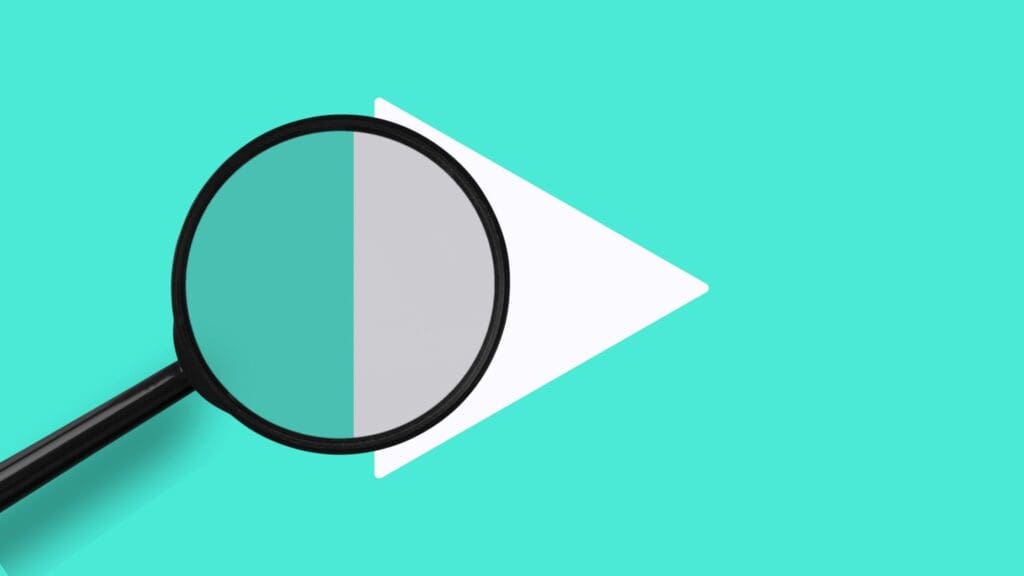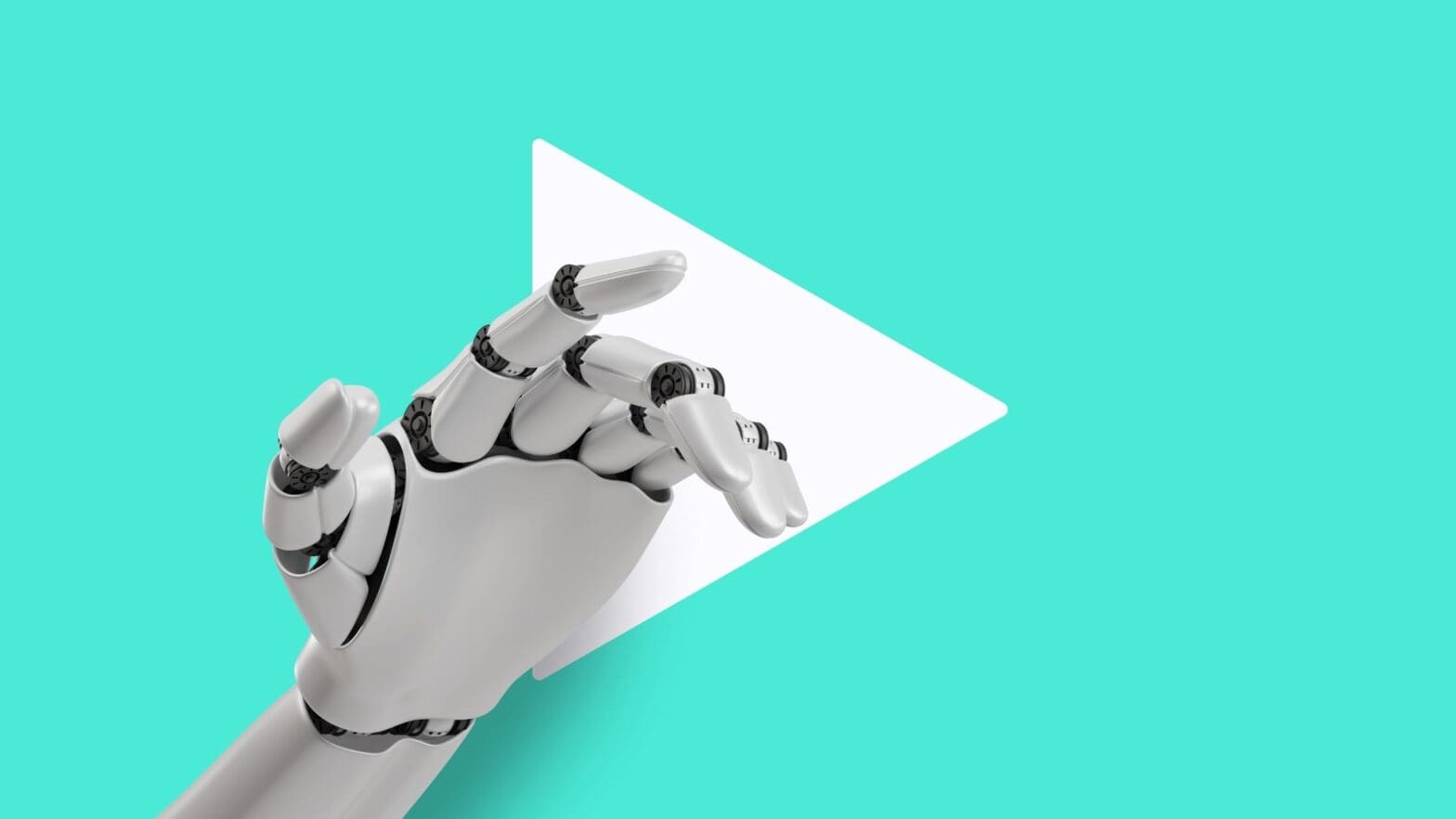If there’s one constant in online content creation it’s change. And the pace of change has only increased with the rise of artificial intelligence (AI) tools.
AI can be a boon for creators, automating and improving on content creation processes. But at the same time, spammers, scammers, and other internet bad guys also have access to AI tools.
It’s a cat-and-mouse game, but YouTube’s latest updates take aim at AI-generated content on YouTube. These new rules try to strike a balance between killing off junk content and allowing creators to take advantage of the many benefits of AI in their creative process.
As creators, it’s important to understand these new YouTube AI content policies that take particular aim at voice cloning, deep fakes, misinformation, and copyright concerns.
The Rising Challenges of AI on YouTube
AI technology has been a double-edged sword in the world of content creation. On one hand, it offers incredible tools to enhance creativity and efficiency. On the other, it presents unique challenges like deep fakes and voice cloning. Clearly, these have raised serious concerns about authenticity and misinformation. YouTube’s recent move to introduce AI-specific policies is a response to these growing challenges.
Understanding the new YouTube AI content policy
Mandatory disclosure requirements are the biggest change. Creators are now required to openly disclose when they’ve used AI to create altered or synthetic content.
This YouTube AI content disclosure policy aims to create transparency and trust. It acknowledges that AI is a useful creative tool. At the same time, it provides a mechanism to remove content that is designed to dupe viewers.

Impact of YouTube AI content policy on creators
For creators who use AI tools for tasks like audio enhancement, scriptwriting, or editing, the extent of the impact of the new YouTube AI content policy remains unclear. Many creators use these types of AI tools. And the lack of clarity from YouTube AI content policy leaves creators guessing as to whether they need to include a disclosure.
One strategy for creators to consider is a templated AI disclosure that’s included on any video where AI tools were used.
YouTube AI content policy takes aim at deep fakes and misinformation
You’ve probably seen AI-generated videos of MrBeast offering $2 iPhones, Elon Musk sharing a hot crypto tip, or similar. These are prime examples of how deep fakes that are designed to mislead.
YouTube’s AI content policy change is a proactive step to combat the spread of such misinformation.
YouTube AI content policy is more strict for sensitive topics
YouTube is placing a heightened focus on content covering sensitive topics like health, elections, and ongoing conflicts. Basically, anything that could be considered journalistic content. Creators who fail to properly disclose altered or synthetic content in these areas risk severe penalties. This includes the loss of access to the YouTube Partner Program and the removal of their content.
Labeling and removing synthetic media
Going forward, content that has been altered or created with AI will be clearly labeled. For YouTube Shorts, this information will appear in the description box. While videos on sensitive topics will have a more prominent label above the video player.
The YouTube AI content policy states that this is an effort to ensure viewers can make informed decisions about the content they consume.
YouTube AI content policy takes aim at creator fakes
Additionally, YouTube will allow creators to request the removal of content that uses their voice or face without consent. Again, a cat-and-mouse game but YouTube is clear that it aims to balance considerations for parody and satire when making decisions.
A dedicated human oversight team will oversee content removals and bans. The hope is to ensure the YouTube AI content policies are applied fairly, without stifling creativity on the platform.
YouTube AI content policy gets a lot of things right
From our perspective, the YouTube AI content policy does a fair job of balancing the need to address AI-generated content that aims to deceive with AI-generated and AI-assisted content from legitimate creators.
Policy is a blunt tool though. There will always be edge cases. Some creators will push the envelope… and scammers and spammers will always be scamming and spamming.
The best advice for creators is to read and understand the YouTube AI content policy. And as it evolves, to take the simple steps to ensure they stay on the right side of it.
Special Creator Day live stream
📅 April 23, 2024
⏰ 6 – 7:30pm PST
What’s next in creator tech? Join BENlabs CEO Ricky Ray Butler, host Judah Lee, and creators King Bach, Hannah Stocking, and Kris London for a special Creator Day event, streaming live from LA.
🚨 YouTube’s New Policy Against AI 🚨– Video transcript
Right now, YouTube has a huge, huge problem with AI content.
Although AI can make content creation easier, it has introduced some major challenges, like voice cloning, deep fakes, fake news, and a ton of copyright issues.
Because of this, YouTube is introducing some new AI restrictions that, you know, not everybody’s gonna be happy with.
Disclosure Requirements
A key change will be the disclosure requirements that will require creators to disclose when they’ve created altered or synthetic content that is realistic, including using AI tools. This includes AI created videos depicting events that aren’t real, or show people doing or saying things they never did.
But what about us creators who aren’t going that extreme? We’re just using AI to help clean up our audio, help write better scripts, maybe help to edit our videos. Well, YouTube doesn’t know yet, and this is just one of many changes that are coming. This first move by YouTube is in response to the emergence of deep fakes and misinformation due to the use of generative AI in content creation.
The most notable example being in AI-generated MrBeast offering $2 iPhones.
If you’re watching this video, you’re one of the 10,000 lucky people who will get an iPhone 15 Pro for just $2.
[MrBeast deepfake] “I’m MrBeast, and I’m doing the world’s largest iPhone 15 giveaway. Click the link below to claim yours now.”
Not to mention that monitoring content that covers sensitive subjects like health, elections, and ongoing conflicts is even more crucial. Creators who failed to disclose altered or synthetic content may lose access to YouTube’s Partner Program. And have their content removed.
YouTube noted that there are some areas where a label alone may not be enough to mitigate the risk of harm. And some synthetic media, regardless of whether it’s labeled, will be removed from the platform if it violates community guidelines.
As of right now, the warnings that you’re gonna start seeing on content look like this.
For Shorts, content that was altered or synthetically created will be indicated in the description box. For videos around sensitive topics, a more prominent label will appear above the video player. YouTube hasn’t revealed anything regarding regular videos, however, it’s reasonable to assume something similar is coming.
YouTube will also allow creators to request the removal of content that uses their voice or face with their help. This includes reviewing factors. Like whether the content is parody or satire. If the requester is uniquely identifiable. And if it involves a public figure. There will also be an option for music creators and labels to request the removal of content that imitates an artist’s style.
YouTube has put together a team of 20,000 humans to oversee removals and bans. Just so that the process can go as smoothly as possible.
What do you think? Do you think that these restrictions are enough to curb the wave of problemsome AI content coming our way? Or does YouTube need to introduce stricter policies?
You can tell me right below the Like and Subscribe button.
And you can watch this video next if you wanna know about a team that YouTube kept secret from everybody.
Special Creator Day live stream
📅 April 23, 2024
⏰ 6 – 7:30pm PST
What’s next in creator tech? Join BENlabs CEO Ricky Ray Butler, host Judah Lee, and creators King Bach, Hannah Stocking, and Kris London for a special Creator Day event, streaming live from LA.
